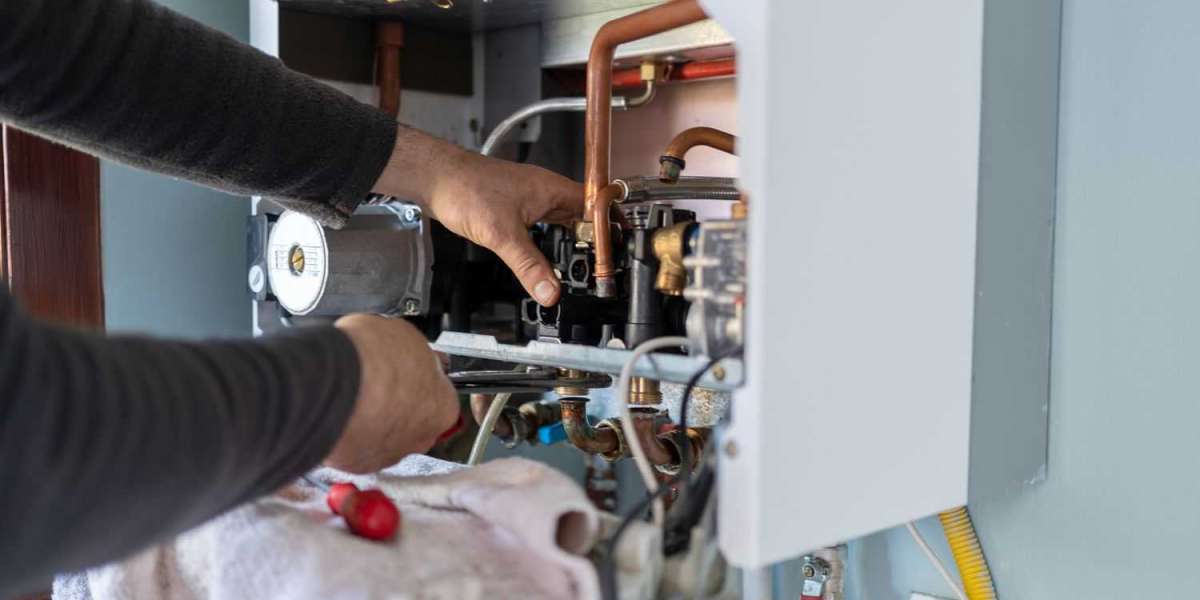Water heaters are essential appliances in any home, providing hot water for daily needs. When these units malfunction, it can be inconvenient and frustrating. Knowing how to handle water heater repair can save you both time and money. This guide will cover common issues, helpful tips for maintenance, and when it’s time to call a professional.
Water Heater Repair: Common Issues and Solutions
A properly working water heater is crucial for your home comfort, but like all appliances, it can experience issues over time. Knowing what problems might arise and how to troubleshoot them can prevent costly repairs. From strange noises to inconsistent water temperatures, here’s how to address some common water heater problems.
Why Is My Water Heater Not Heating?
Water heater repair not heating is one of the most frequent complaints homeowners face. It could be caused by various issues, including a malfunctioning thermostat, a faulty heating element, or even a tripped circuit breaker. If you're dealing with this issue, follow these troubleshooting steps:
Check the Thermostat Setting
Start by ensuring that the thermostat is set to an appropriate temperature, typically around 120°F. If it's too low, the heater might not produce enough hot water.
Examine the Heating Element
If the thermostat is fine, the heating element could be the culprit. A broken element won't heat the water, and you may need a professional to replace it.
Inspect the Circuit Breaker
Sometimes, the issue could be electrical. A tripped circuit breaker can cut off power to the water heater. Resetting the breaker might resolve the problem.
Is There Sediment Buildup in My Water Heater?
Over time, mineral deposits can accumulate in the bottom of the tank, especially in areas with hard water. This sediment buildup can lead to reduced efficiency, strange noises, and even complete failure of the unit.
Flush the Tank Regularly
To prevent sediment buildup, flush your water heater once a year. This will help remove debris and improve the heater’s efficiency.
What Are the Signs of a Leaking Water Heater?
A leaking water heater can cause serious damage to your home. It’s important to address leaks as soon as they are detected to avoid water damage.
Check for Water Around the Base
Inspect the area around the water heater for any visible signs of water pooling. Leaks can occur from the tank itself or from the pipes connected to the unit.
Examine the Pressure Relief Valve
If the valve is malfunctioning, it can cause the heater to leak. Regularly inspect the valve to ensure it’s in good working condition.
How to Maintain Your Water Heater for Longevity
Proper maintenance is key to extending the lifespan of your water heater. Simple tasks, like checking the temperature setting and performing annual flushing, can prevent costly repairs in the future.
Test the Temperature Relief Valve
The temperature and pressure relief valve should be tested annually to ensure it works properly. This valve helps prevent excessive pressure and temperature from building up in the tank, which could lead to damage or a dangerous situation.
Consider Insulating the Tank
Insulating your water heater can reduce heat loss and improve energy efficiency. Insulation blankets are widely available and easy to install.
When to Call for Professional Water Heater Repair
While there are many water heater issues you can troubleshoot yourself, some problems require a professional touch. If you’ve tried basic troubleshooting and your water heater is still malfunctioning, it’s time to call an expert.
Signs You Need Professional Help
- Persistent water temperature problems
- Strange noises coming from the tank
- Leaks that you can’t identify or fix on your own
- Difficulty getting hot water at all
How to Choose a Professional for Water Heater Repair
Choosing the right plumbing and heating professional is essential for successful repairs. Look for licensed and insured companies with positive customer reviews.
Why Regular Water Heater Maintenance Is Crucial
Regular maintenance is essential for preventing issues before they become serious. By inspecting your water heater annually, you can spot problems early and avoid the cost of extensive repairs or replacements.
FAQ’s
Why is my water heater making a popping noise?
Popping sounds usually occur when sediment builds up inside the tank. This causes water to bubble and boil, making a popping noise. Flushing the tank can solve this issue.
How often should I flush my water heater?
It’s recommended to flush your water heater once a year, particularly if you live in an area with hard water. This helps prevent sediment buildup and maintains the efficiency of the unit.
Can I repair a water heater myself?
While some minor issues like thermostat adjustment or resetting the circuit breaker can be handled by homeowners, major repairs like replacing a heating element or fixing leaks should be done by a professional.
How do I know when it’s time to replace my water heater?
If your water heater is more than 10 years old and requires frequent repairs, it might be time to replace it. Also, if you notice rust-colored water or constant temperature fluctuations, replacement could be a better option.
Final Verdict
Taking care of your water heater can prevent unnecessary breakdowns and extend its lifespan. Regular maintenance, early issue detection, and timely repairs are key to keeping your system running efficiently. While minor problems can be handled on your own, don’t hesitate to call professionals for more complex issues. Nagra Bros. Plumbing Heating Ltd is ready to help you with all your water heater needs. If you're facing issues, give them a call at 604-767-0545 or visit their location at 13158 109 Ave, Surrey, BC.








